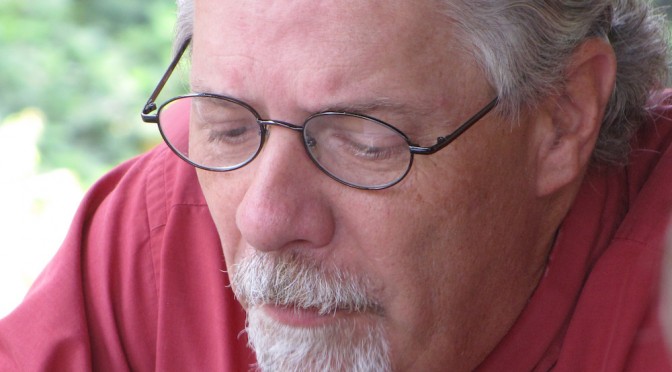
Most folks my age or older lived through a horrific part of our history in the USA during the 50’s and 60’s. A time when our cities burned both physically and with emotional hatred. A time that is burned deep into our hearts and souls. A time that even today has scars that go deep and the healing is still slow and at times becomes horribly infected.
The cost of racism in this country has been high and the cost of human life is ridicules for a country where the “religious zealots” call us a “Christian Country”.
So when a member of our Church had a chance to remember, he took that opportunity to journey, remember and pay honor to a person who truly “walked the talk” of Jesus.
Lance is a deeply spiritual man and I now give you a part of his journey so that we don’t forget…
On Saturday August 11th I participated in the 9th Annual Jonathan Myrick Daniels and Martyrs of Alabma pilgrimage in Hayneville, Alabama. Daniels was an Episcopal seminarian from New Hampshire who was martyred at Varner’s Grocery Store in Hayneville on August 20, 1965, when he caught the full blast of a shotgun aimed at 17-year-old Ruby Sales, an African-American girl at whom a shotgun had been leveled by Tom Coleman, who was later found not guilty by a local court. Myrick’s death helped galvanize support for the civil rights movement within the Episcopal Church.
My connection to Daniels is that I was baptized and experienced my early Christian formation in the Episcopal Diocese of New Hampshire, where in my home parish we prayed every Sunday for “Blessed Jonathan Daniels of New Hampshire”. When I saw that a pilgrimage in honor of this Episcopal martyr was to take place, I was drawn to participate.
What I experienced was a powerful remembrance of the life and works of a singular man who gave his life while discerning a calling for the priesthood — and following that, a call for justice that took him to a part of the country that is my home now and that is the land of my birth and upbringing. What we all experienced in Hayneville was a call to honor the life, works and death of Jonathan Daniels and the Martyrs of Alabama by continuing to work for a just and equal society and a compassionate world.
The pilgrimage involved a procession from the central square in Hayneville to the building that was the jail where Daniels and his compañeros endured inhumane conditions after having been arrested for picketing a whites-only store in Fort Deposit, Alabama. All of the protestors were arrested and taken to jail in Hayneville. They were held for six days and refused to accept bail unless everyone was bailed. When the prisoners were released without transport back to Fort Deposit, Daniels and three others — a white Roman Catholic priest and two African-American protestors — went down the street to get a cold soft drink at Varner’s Grocery Store, one of the few local stores that would serve nonwhites. They were met at the front by Tom Coleman, an engineer for the state highway department and unpaid special deputy, who wielded a shotgun and yelled an obscenity at them. When the man threatened the group and finally leveled his shotgun at Ruby Sales, Daniels pushed Sales to the ground, caught the full blast of the gun and was killed instantly.
Coleman was acquitted by a jury of 12 white men, on the grounds of self-defense, and in spite of the testimony of Ruby Sales.
In 1991 Daniels was designated a martyr of the Episcopal Church, one of 15 modern-day martyrs, and August 14th was designated as a day of remembrance for the sacrifice of Daniels and all the martyrs of the civil rights movement.
Our pilgrimage ended in the courthouse where Coleman was acquitted.
The bench where the judge sat was converted to an altar, and we celebrated a Eucharist where the hymns we sang were accompanied by singers who sat in the part of the courtroom where the jury that acquitted Coleman had sat. At the start of the Eucharist we were addressed by the mayor of Hayneville, an African-American woman. The law enforcement officers who had guarded our procession were African- American. Lowndes County, of which Hayneville is the seat, is 73% African-American.
I’m sure the world in which we live today, with its outward and visible signs of racial equality (to set aside for a moment the truth of the invisible racism that now permeates it), was just as hard for many of the people of 1960’s Lowndes County to imagine as it is for us to imagine the amount of hatred and violence that once found a home there.
What I gained from Saturday’s pilgrimage was a great sense of having participated in a healing of that chasm of history, circumstance and understanding. We know from the Holocaust and from 9/11 just how great is our human capacity to move beyond shocking historical events — and then, eventually, to underestimate their significance — without truly integrating their lessons.
It’s a collective forgetting that is truly regrettable and that violates one of the principle axioms of human collective behavior: Those who do not learn from their history are doomed to repeat it. Saturday’s pilgrimage, the ones preceding it and the ones to follow, are a small but powerful effort to turn back that tide of forgetting and replace it with healing.
Amen my brother Amen!